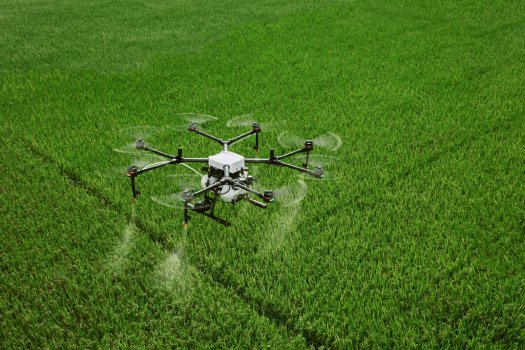In May, Uganda Flying Labs conducted a drone application training course with 75% of the attendants coming from the nation’s agricultural sector. Uganda is not the only nation in Africa taking steps to adopt drone technology. In Togo, in West Africa, e-AgriSky, a vocational farmer’s training school, has recently admitted 16 students from across Africa to learn more about drones. Such private sector-driven initiatives may be the baby steps towards fully adopting the technology in Africa’s agriculture. While some argue that the small-scale nature of most African farms limits the application of drones, offering drones as a service is a viable option that entrepreneurs should consider. This model allows a few drones to be used by many farmers, delivering the benefits of drone technology in agriculture while realizing reasonable profits to ensure sustainability.
Drone technology traces its history to military applications, where it is deployed in aerial surveillance. In recent years, drones have found their way into agriculture in various applications, including land and crop surveying, inspection and monitoring, and agricultural assets and insurance. Previously, other technologies such as satellites and helicopters performed most of these applications at substantial operational costs and limited efficiency. Thanks to drones, which usually come equipped with sensors and software to gather and process data, most of the mentioned agricultural operations are now much easier to conduct and at a lower cost. While the technology’s adoption is at advanced stages in other parts of the world, its application in Africa remains a challenge for various reasons.
Continue reading: https://intpolicydigest.org/drones-in-africa-a-viable-business-model-for-small-entrepreneurs/
Drone technology traces its history to military applications, where it is deployed in aerial surveillance. In recent years, drones have found their way into agriculture in various applications, including land and crop surveying, inspection and monitoring, and agricultural assets and insurance. Previously, other technologies such as satellites and helicopters performed most of these applications at substantial operational costs and limited efficiency. Thanks to drones, which usually come equipped with sensors and software to gather and process data, most of the mentioned agricultural operations are now much easier to conduct and at a lower cost. While the technology’s adoption is at advanced stages in other parts of the world, its application in Africa remains a challenge for various reasons.
Continue reading: https://intpolicydigest.org/drones-in-africa-a-viable-business-model-for-small-entrepreneurs/

